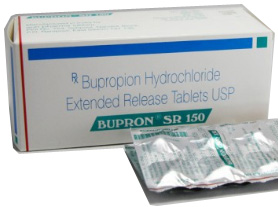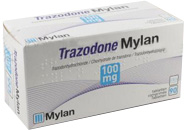Zoloft, also known by its generic name sertraline, is a prescription medication that belongs to a class of drugs called selective serotonin reuptake inhibitors (SSRIs). It is primarily used to treat major depressive disorder, social anxiety disorder, panic disorder, and obsessive-compulsive disorder. Zoloft works by increasing the amount of serotonin, which is a neurotransmitter, in the brain. This helps to restore the balance of chemicals in the brain and alleviate the symptoms associated with these psychiatric conditions.
The efficacy and safety of Zoloft have been extensively studied and it is considered to be an effective treatment option for the aforementioned conditions. However, it is important to note that Zoloft should be used under the guidance and supervision of a healthcare professional.
Avoiding Risks with Zoloft
Contraindications:
| Condition | Explanation |
|---|---|
| Allergy to sertraline or other SSRIs | Zoloft should not be used in individuals with a known allergy to sertraline or other SSRIs as it may cause severe allergic reactions. |
| Taking monoamine oxidase inhibitors (MAOIs) | The concomitant use of Zoloft with MAOIs or within 14 days after discontinuing MAOIs is contraindicated due to the risk of serotonin syndrome, a potentially life-threatening condition characterized by agitation, hallucinations, rapid heartbeat, and increased body temperature. |
| Use of pimozide | Concurrent use of Zoloft with pimozide, a medication used to treat Tourette’s disorder and certain types of schizophrenia, is contraindicated due to the risk of potentially serious cardiac arrhythmias. |
| Incompatible medications | Some medications may interact with Zoloft and cause adverse effects. It is important to inform your healthcare provider about all the medications you are currently taking to avoid potential interactions and risks. |
Managing Side Effects
Zoloft may cause certain side effects, although not everyone will experience them. Common side effects observed in clinical trials include nausea, diarrhea, insomnia, dizziness, drowsiness, dry mouth, sweating, and sexual dysfunction. These side effects are generally mild and transient, and they often resolve spontaneously with continued treatment. If any of these side effects become severe or persistent, it is recommended to consult a healthcare professional.
In rare cases, Zoloft can cause more serious side effects such as serotonin syndrome, which may occur when the levels of serotonin in the brain become too high. Symptoms of serotonin syndrome may include agitation, hallucinations, rapid heartbeat, fever, muscle stiffness, and tremors. If any of these symptoms occur, medical attention should be sought immediately.
It is important to note that abruptly stopping the use of Zoloft can lead to withdrawal symptoms, such as dizziness, headache, nausea, irritability, and sleep disturbances. To minimize the risk of withdrawal symptoms, the dose of Zoloft should be gradually tapered off under the guidance of a healthcare professional.
Dosing Information
When taking Zoloft, it is important to follow the prescribed dosage and administration instructions provided by your healthcare professional. The usual starting dose for adults with depression or obsessive-compulsive disorder is 50 mg per day, which may be increased gradually if necessary. The maximum recommended dose is 200 mg per day.
If a dose of Zoloft is missed, it should be taken as soon as possible. However, if it is almost time for the next scheduled dose, the missed dose should be skipped and the regular dosing schedule should be resumed. Doubling the dose to make up for a missed dose should be avoided.
In case of an overdose, medical attention should be sought immediately. Symptoms of an overdose may include nausea, vomiting, dizziness, tremor, agitation, seizures, and rapid heartbeat. It is important to note that the toxicity of Zoloft increases with higher doses, and severe cases of overdose may require supportive medical intervention.
Interactions Guide
Zoloft may interact with certain medications, which can potentially affect its efficacy or increase the risk of side effects. It is important to inform your healthcare professional about all the medications, supplements, and herbal products you are currently taking, including prescription and over-the-counter drugs.
Some medications that may interact with Zoloft include:
- Monoamine oxidase inhibitors (MAOIs): Concurrent use of Zoloft with MAOIs or within 14 days after discontinuing MAOIs is contraindicated due to the risk of serotonin syndrome.
- Pimozide: Concurrent use of Zoloft with pimozide is contraindicated due to the risk of potentially serious cardiac arrhythmias.
- Nonsteroidal anti-inflammatory drugs (NSAIDs): Zoloft may increase the risk of bleeding in individuals taking NSAIDs, such as aspirin or ibuprofen.
- Warfarin and other anticoagulants: Zoloft may interact with anticoagulant medications and increase the risk of bleeding.
- Other antidepressants: Concurrent use of Zoloft with other antidepressant medications, such as tricyclic antidepressants or lithium, may increase the risk of serotonin syndrome or other adverse effects.
These are not all the possible drug interactions, and other medications may also interact with Zoloft. It is important to consult your healthcare professional for a complete and updated list of potential interactions.
Ask and Answer
-
Question: Can Zoloft be used during pregnancy?
Answer: Zoloft may be used during pregnancy if the potential benefits outweigh the potential risks to the fetus. However, it is recommended to consult a healthcare professional for an individual assessment of the risks and benefits in each case. -
Question: How long does it take for Zoloft to start working?
Answer: The onset of action of Zoloft may vary from person to person, but it is generally recommended to allow at least several weeks of treatment before expecting significant improvements in symptoms. It is important to follow the prescribed treatment plan and consult a healthcare professional if there are concerns about the medication’s effectiveness. -
Question: Can Zoloft cause weight gain?
Answer: Weight gain is a possible side effect of Zoloft, although it does not occur in everyone. If weight gain becomes a concern, it is recommended to discuss it with a healthcare professional who may provide further guidance and recommendations. -
Question: Can alcohol be consumed while taking Zoloft?
Answer: Consumption of alcohol should be avoided or limited while taking Zoloft. Alcohol can increase the sedative effects of Zoloft and impair cognitive function. Additionally, alcohol may worsen certain psychiatric conditions that are being treated with Zoloft. -
Question: Can Zoloft be taken with food?
Answer: Zoloft can be taken with or without food. However, taking it with food may help reduce the likelihood of gastrointestinal side effects, such as nausea and stomach upset.






Reviews
There are no reviews yet.